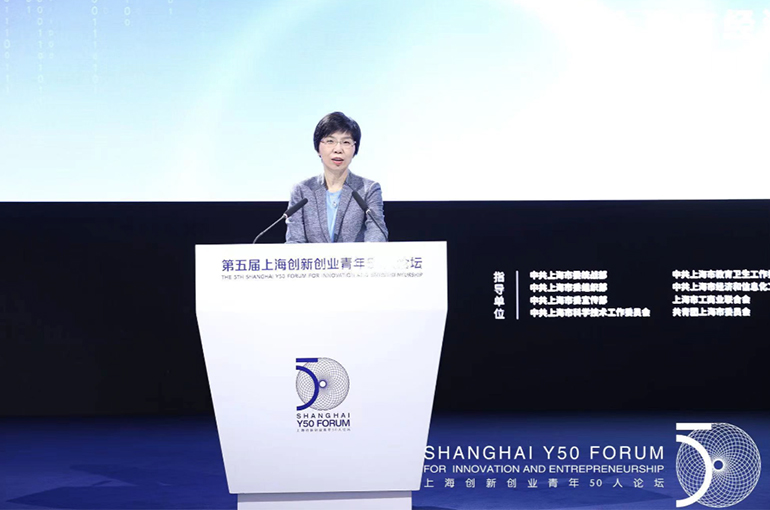 Androids to Work in Shanghai’s Manufacturing, Service Sectors, Official Says
Androids to Work in Shanghai’s Manufacturing, Service Sectors, Official Says(Yicai) May 20 -- Shanghai is expanding the city's humanoid robot industry to bring human-like robots to factories and service providers, according to the director of the municipal commission of economy and informatization.
Shanghai is actively formulating new policies to deepen the application of open-source humanoid robots in industrial manufacturing, services, and other sectors, Zhang Ying said during the recent Shanghai Y50 Forum for Innovation and Entrepreneurship.
Last Friday, the eastern city established the country's first public platform for humanoid robotics to create an innovative ecosystem that integrates technology research and development, incubation, talent cultivation, and platform support.
Shanghai's goal is to demonstrate 1,000 large-scale applications within three years, per Zhang. It will also promote the use of such robots in factories to have a density of 500 units per 10,000 workers in key industries by 2025.
The official introduced some of the city's strategic directions. Shanghai is making every effort to advance three leading industries: integrated circuits, biomedicine, and artificial intelligence. Moreover, it has a strong focus on six key industries: electronic information, life and health, automotive, high-end equipment, advanced materials, and fashion. Finally, the city highlights four emerging tracks: digital economy, green and low-carbon initiatives, the metaverse, and smart devices.
The financial hub is determined not to lose in the global AI race, lately materializing in the steady launch of large language models. Shanghai has hosted six editions of the World Artificial Intelligence Conference, gathering industry-leading smart chip innovators. The city gives firms that develop LLMs up to a 10 percent subsidy to cover part of their computing power costs.
Moreover, the city is making progress in the low-altitude economy, a novel field that contains electric vertical take-off and landing aircraft and drones. Shanghai has garnered 70 percent of the domestic talent pool in civil aviation, Zhang said, adding that it will strive to accelerate the construction of a digital service system to manage low-altitude flights to support growth.
Editor: Emmi Laine